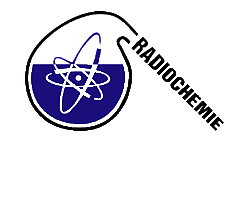Speaker
Dr
Teija Koivula
(post-doctoral researcher)
Description
Cooperation in education and training In Nuclear Chemistry - CINCH-II project - aims at coordination of education and training schemes in nuclear and radiochemistry (NRC). One of the specific objectives of the project is therefore to identify the current level of NRC education in Europe. Surveying universities and various educational programmes was started under CINCH-I during the years 2010-2011. Results were published in a report “Nuclear and radiochemistry curricula in the European universities” and a list of contact information to the universities/departments that were included in the study (http://www.cinch-project.eu/); altogether 69 universities in 22 countries participated in this survey. The results showed diversity of the NRC education in Europe. At BSc level NRC is mainly taught in basic courses under various educational programmes such as chemistry or environmental sciences. There are only few complete programmes, i.e. BSc/MSc degrees in NRC; however, education in the same extent can be attained in various specializations under e.g. the degrees MSc in Chemistry or Chemical/Environmental engineering. Majority of these specializations are general NRC, one large specified topic is environmental radiochemistry/radioecology. Research training and diploma work have a strong role in specialization; however, the extent of specialization varies significantly in different educational systems. Furthermore, some countries/universities are only on their way to accreditation of the Bologna system. Curriculum in NRC typically reflects research interests of the department. Many universities have high level of research and offer possibility to do PhD-work in NRC related fields but have only limited education at lower level(s). Collaboration between universities and industry/research units brings education and training closer to each other and also effects development of the academic programmes. To have an up-to-date view on the current status of the education in NRC the survey is now continued under the CINCH-II project. Universities/departments already included in the first report are therefore asked (via their contact persons) to update relevant information on their unit, especially concerning changes in the curricula and focus of education in NRC. Other interested units can join the survey by sending free-form e-mail or by answering short questions in a questionnaire on the project web page. CINCH project partners will also contribute on the current situation in their respective countries. Perspectives on the current status of NRC education in Europe will be presented in this talk. Report from the overall survey will be published on the project web page by the end of 2015.
Primary author
Dr
Teija Koivula
(post-doctoral researcher)
Co-author
Prof.
Jukka Lehto
(professor)

